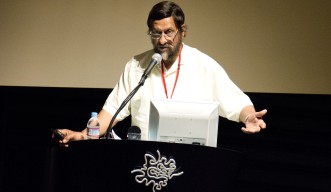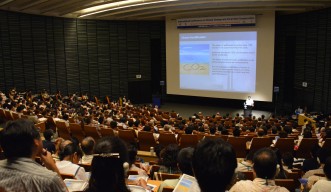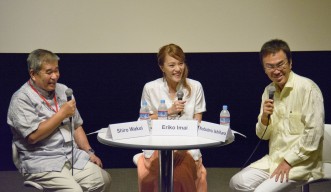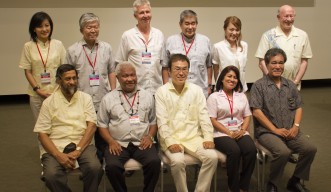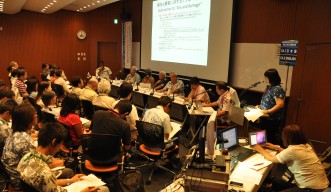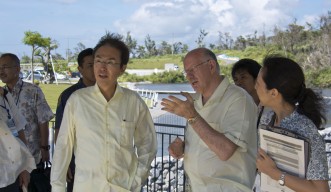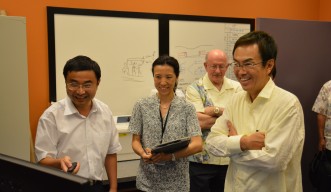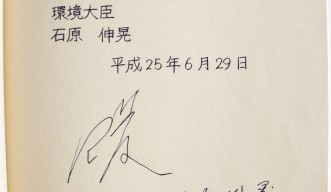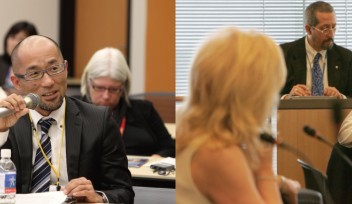Climate Change and Coral
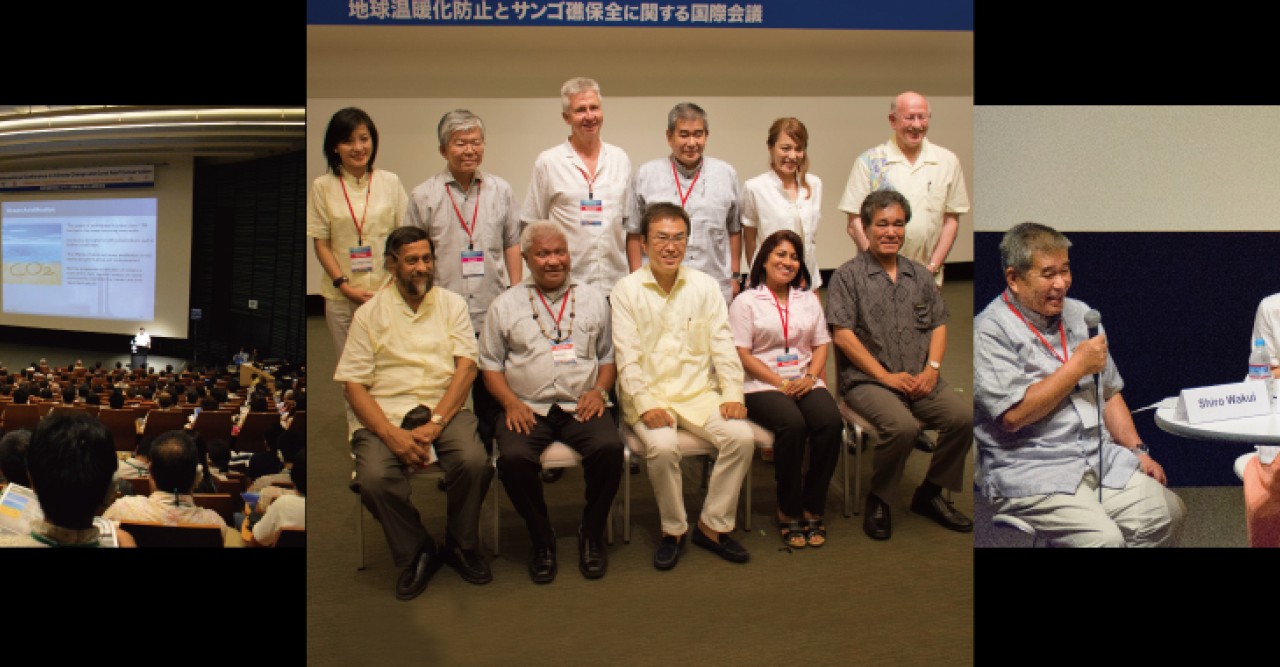
On June 29 and 30, the International Conference on Climate Change and Coral Reef Conservation, organized by the Ministry of the Environment and Okinawa Prefecture with the support of OIST and the University of the Ryukyus, was held at the OIST campus. Government ministers and experts from 14 countries and regions, including the Maldives and Palau, gathered to discuss the impact of climate change, in particular on coral reef.
On the first day, a keynote address by Dr. Rajendra Pachauri, IPCC Chair, was given in the 500-seat OIST auditorium which was completely filled with attendees. Other events of the day included an entertaining conversation between Nobuteru Ishihara, Minister of the Environment, Shiro Wakui, Professor of Tokyo City University, and artist Eriko Imai. There was also a panel discussion, in which six experts exchanged opinions on how to keep islands in harmony with nature.
During the opening speech, Minister Ishihara said that the purpose of the conference was to “discuss issues that island nations face and to send a message to the world”, as he revealed the government’s initiative to extend comprehensive support to island nations by providing environmental solutions that capitalize on Japanese technology, human resources, and know-how. OIST President Dr. Jonathan Dorfan greeted the guests, saying, “I believe that knowledge creation is potentially the most powerful tool for providing solutions to the problems not only of climate change, but also energy supply, human health, shortages of food and water. Universities have the increasing obligation to engage in, and help solve, the problems that beset our global society.”
On the second day of the event, four parallel meetings took place, bringing 200 participants together to discuss “coral reef conservation”, “mitigation measures on climate change in islands”, “current status and prospects of ecotourism in coral reef islands”, and “adaptation to climate change”. The first section was joined by Professor Noriyuki Satoh from OIST, who discussed his latest study on coral genome. Prof. Satoh and his team spent two and half years decoding the genome of the coral, Acropora digitifera, and recently completed sequencing the genome of the symbiotic zooxanthella, Symbiodinium minutum. Prof. Satoh said the comparative study of genomes of corals in different locations and how each coral responds to changes in water temperature may play a significant role in coral conservation.
In an interview, Mariyam Shakeela, Minister of Environment and Energy of the Republic of Maldives, said, “The conference has been momentous since mitigation of global warming and coral conservation are concurrently discussed with all people considered.” She added, “Japan has provided great support to the Maldives, including construction of concrete protective seawalls in Maldives’ capital Male. The agreement to use the Joint Crediting Mechanism (JCM)* will further strengthen the relationship between the two nations.”
In the closing session, Ryutaro Yatsu, Vice-Minister for Global Environmental Affairs, stated that Japan and other island nations should work together to address environmental issues unique to islands. He expressed his hope to continue having future conferences like this one in Okinawa every year. Yoshiko Tahara, one of the participants, who was born near Saipan during the war, remarked, “I am glad that I participated in the event. It is a great thing that all the island nations work together.”
* Joint Crediting Mechanism (JCM): A new mechanism being established by the Ministry of Environment to appropriately evaluate Japan’s contributions to CO2 emission reduction in other countries.
For press enquiries:
Press Inquiry Form
